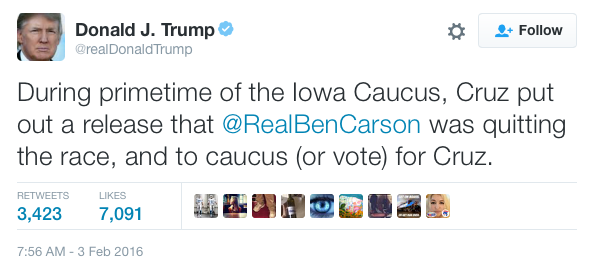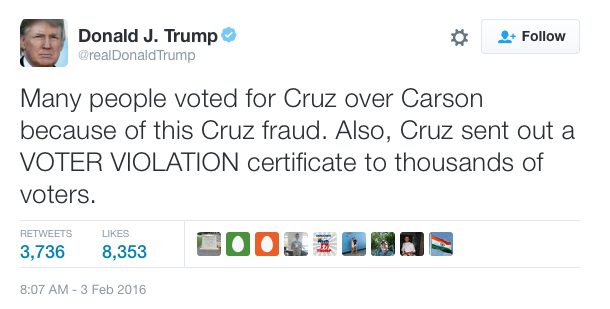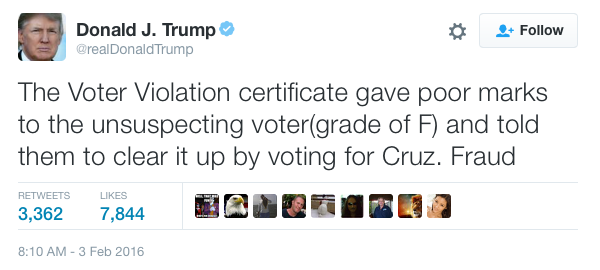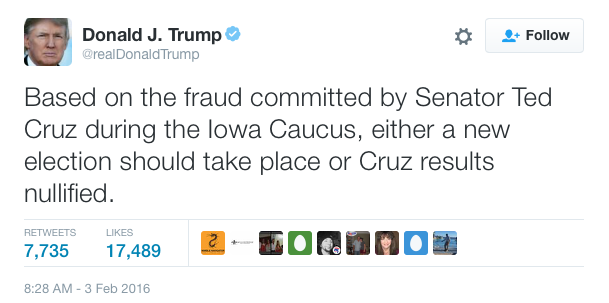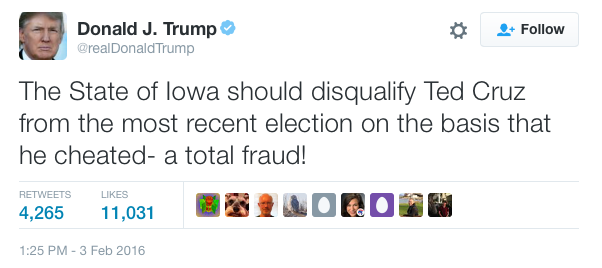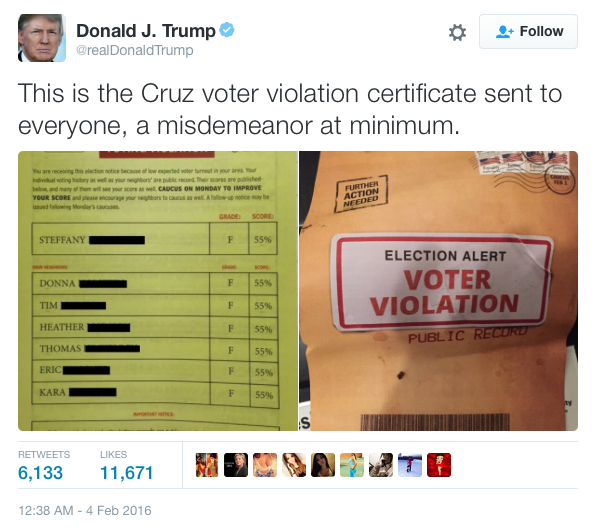The Republican Party of Iowa changed its bylaws earlier this year to prevent a repeat of what state party chair Jeff Kaufmann has called “the 2012 fiasco.” During the last Republican National Convention, 22 of Iowa’s delegates cast their ballots for Ron Paul, who had finished third in the Iowa caucuses. Only six of our state’s delegates cast ballots for GOP nominee Mitt Romney.
Kaufmann has described the Iowa GOP’s new rules as designed to force RNC delegates to “vote with the intentions of the caucusgoers — the wishes of the grassroots.”
So why did all 30 of Iowa’s votes go to Donald Trump during today’s roll call vote in Cleveland?
Former State Central Committee member David Chung published the new passages from the bylaws in a February 2 post at his Hawkeye GOP blog. He also explained the rule in layman’s terms:
It means that individual Iowa delegates will not vote on the first ballot at the convention. The chairman of the delegation will simply do the math and announce Iowa’s vote based on this rule.
So, if only one candidate meets the threshold to be officially placed into nomination, they will receive all of Iowa’s votes.
If more than one candidate is officially placed into nomination, then Iowa’s votes will be recorded in proportion to the caucus night totals. In other words, Iowa will cast some votes for candidates who have suspended their campaigns and are no longer running. There will be no recalculation, there is no opportunity for a candidate to release or pledge his votes for another.
Although Senator Ted Cruz of Texas won ten primaries or caucuses, plus most of the delegates from Colorado, his name was not placed in nomination today (reportedly at his own request). For that reason, Iowa delegation chair Matt Schultz, who was the Cruz campaign’s state chair before the caucuses, declared during the roll call that “pursuant to the rules,” the Iowa GOP “proudly casts its 30 votes for the next president of the United States, Donald J. Trump.”
Not all Cruz supporters were so willing to accept the inevitable. The Utah delegation attempted to cast all of its votes for Cruz but were overruled, because as in Iowa, state rules required the votes to go to a candidate in consideration for the GOP nomination. Similarly, the Alaska delegation tried to cast some votes for Cruz but had all the state’s votes recorded for Trump.
If the Iowa GOP’s State Central Committee had designed its rules differently, our RNC delegation could have voted in a way that reflected the February 1 caucus results, regardless of who was formally nominated at the convention. For example, the majority of delegates from Texas were able cast their votes for Cruz, winner of that state’s primary.
The final delegate count after the roll call: 1,725 delegates for Trump, 475 for Cruz, 120 for Ohio Governor John Kasich, 114 for Senator Marco Rubio of Florida, seven for Dr. Ben Carson, three for former Florida Governor Jeb Bush, and two for Senator Rand Paul of Kentucky.
Any comments about the presidential race are welcome in this thread.
UPDATE: I should have mentioned that based on the Iowa Republican caucus result, Cruz should have received eight delegates, Trump and Rubio seven each, Carson three, and Paul and Bush one each. Three RNC delegates would have been determined later.
Just for fun, here’s a look back at Trump’s whiny tweetstorm after losing the Iowa caucuses to Cruz.



